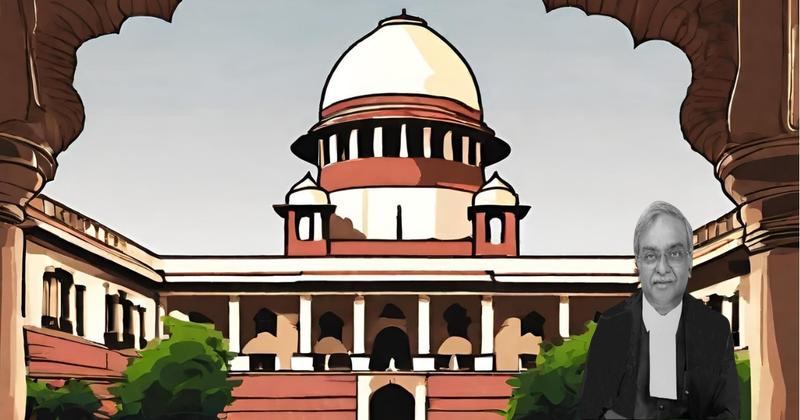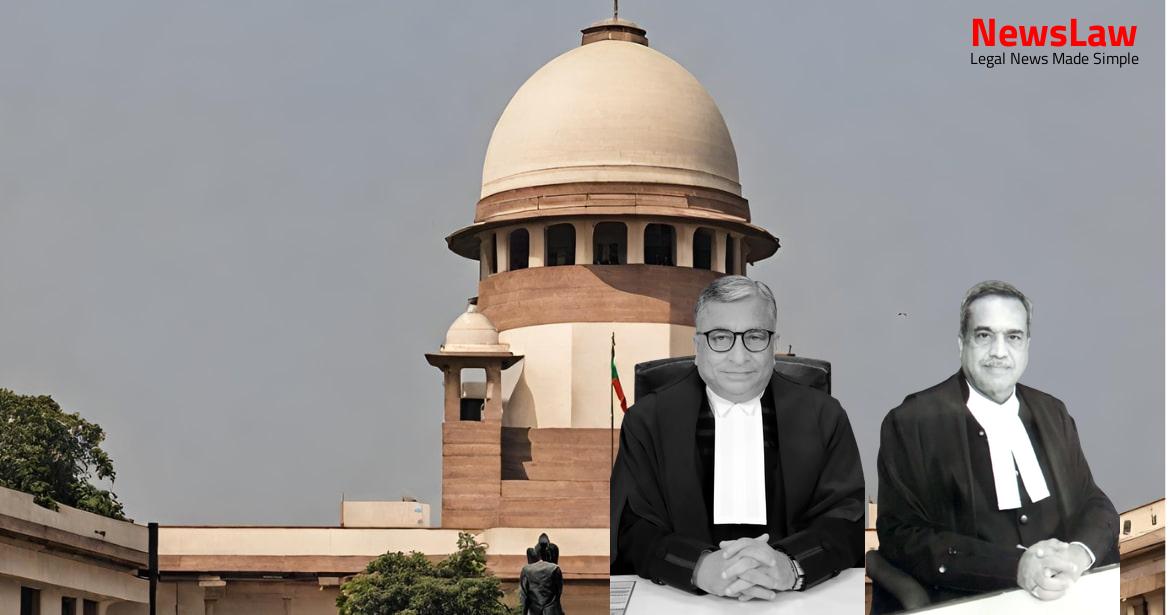354 of 2019, filed by Adani Power Maharashtra Limited (hereinafter referred to as ‘APML’), respondent No 1 herein, thereby challenging the order dated 6 September 2019, passed by Maharashtra Electricity Regulatory Commission (hereinafter referred to as ‘MERC’). Thereafter, on 6 November 2007, the MoC issued a Letter of Allocation (LoA) to APML conveying the allocation of Lohara (West) and Lohara Extension (E) Coal Blocks as the allocated source of fuel. Thereafter, on 21 February 2008, i.e., seven days after the bid cut-off date, the Conservator of the Tadoba Andheri Tiger Reserve (for short, “TATR”) approved the constitution of an Expert Committee for the creation of a Buffer Zone surrounding the core area of TATR under Section 38(V) of the Wildlife (Protection) Act. Insuance of APML’s application for coal linkage, the SLC(LT) issued a Letter of Assurance (LoA) dated 12 November 2008, authorising the coal linkage sought, whilst at the same time, acknowledging that the Lohara Coal Blocks catered to the requirement for generation of a portion of APML’s contracted capacity, i.e. Since the Lohara Coal Blocks could not be utilized to meet the requirements under the 1320 MW PPA, APML first informed MSEDCL of its inability to supply power, vide letter dated 22 May 2010 and, thereafter, issued a termination notice to MSEDCL dated 16 February 2011 due to the occurrence of force majeure, on account of cancellation of Lohara Coal Blocks, in terms of Article 12 of the 1320 MW PPA. On 21 August 2013, MERC passed an order in the said petition directing for a meeting of the Expert Committee to be constituted to evaluate the impact of withdrawal of the ToR on Units II and III of Tiroda TPS and determine a compensatory charge to be paid to APML. The said High-Level Expert Committee filed its report on 17 February 2014 recommending grant of compensatory tariff to APML for 800 MW capacity which was entirely dependent on coal from Lohara Coal Blocks.
On 11 May 2016, APTEL partly allowed Appeal
Also Read: https://newslaw.in/case-type/criminal/abuse-of-process-of-law-a-case-of-delayed-fir-filing/
No 296 of 2013 filed by Prayas setting aside the order of MERC dated 21 August 2013, except on the issue of ToR cancellation not being a force majeure event. 241 of 2016 and set aside the order of the MERC dated 21 August 2013 and remanded the matter to MERC for fresh consideration in the light of judgment of this Court in the case of Energy Watchdog (supra). Being aggrieved thereby, MSEDCL preferred an appeal, being Appeal No 340 of 2019, on the ground that MERC erred in declaring the event of deallocation of Lohara Coal Blocks as ‘Change in Law’ event under the PPA. (2) Whether MERC was justified in considering the landed cost of linkage coal as the basis for computing change in law compensation to Adani when Lohara Coal Blocks were the bid- identified source of coal?
The APTEL, vide the impugned judgment and order dated 5 October 2020, answered the issues as under: “14.1 Issue No.1:- We hold that the Appellant was affected by change in law on account of the de-allocation of Lohara Coal Blocks. 3 Issue No.3:-
As the Appellant itself had sought the carrying cost at the rate prescribed in the MYT Tariff Regulations in its petition before the State Commission, we see no reason to interfere with the impugned order on this issue. The issue is decided in favour of the Appellant.” Consequently, the APTEL allowed the appeal filed by APML, while rejecting the appeal preferred by MSEDCL. It is submitted that Clause 4.1.1 of the PPA devolves an obligation and responsibility on APML to obtain and maintain all consents required under the PPA and, as such, mere deallocation of Lohara Coal Blocks could not be treated as ‘Change in Law’. APML and Others ”, for short], since the deallocation of Lohara Coal Blocks was on account of inclusion of the said area into Buffer Zone of TATR vide notification of Government of Maharashtra dated 5 May 2010, which was much after the cut-off date, both MERC and APTEL have correctly held that the said event would amount to ‘Change in Law’.
Also Read: https://newslaw.in/case-type/criminal/analysis-of-circumstantial-evidence-conviction-reversed/
It is further submitted by Shri Poovayya that the Bank Guarantee furnished by APML was also returned by CIL, finding no fault on the part of APML thereby fortifying its claim for Change in Law benefit. However, insofar as the other appeals are concerned, it was submitted that, in addition to the three common issues, certain additional issues were also involved and it was agreed that after those two appeals are decided, the other appeals should be heard for considering these additional issues. The third issue was answered holding that the Start date for the ‘Change in Law’ event for the NCDP, 2013 is 1 April 2013. As such, Issue No 4 with regard to compensation for shortfall of domestic coal on account of ‘Change in Law’ on account of amendment to the SHAKTI Policy stands covered by our judgment dated 3 March 2023 in the case of MSEDCL v.
APML and Others (supra), after considering the relevant provisions under the Electricity Act, 2003 with regard to constitution of various expert bodies like the CEA, CERC and the learned APTEL, has held that these bodies are bodies consisting of experts in the field. We find that the only issue that is required to be considered is as to whether deallocation of Lohara Coal Blocks would amount to ‘Change in Law’ and as to whether APML would be entitled to restitution on account of the same. Insofar as the said issue is concerned, the same is concurrently held in favour of APML by both the MERC and the APTEL, thereby declaring the event of deallocation of Lohara Coal Blocks as ‘Change in Law’. or any interpretation of any of them by an Indian Governmental Instrumentality and having force of law and shall further include all applicable rules. It cannot be disputed that Government of Maharashtra, Government of India and various statutory authorities would fall under the term ‘Governmental Instrumentalities’. Thereafter, on 7 March 2008, the Conservator, TATR submitted the proposed demarcation to the Chief Conservator of Forest for creating the Buffer Zone surrounding the core area of TATR. It is further clear from the record that MoC had allocated Lohara Coal Blocks vide allocation letter dated 6 November 2007 and MoEF granted the ToR for Lohara Coal Blocks on 16 May 2008 pursuant to EAC’s recommendation in the meeting dated 28 April 2008. Insofar as methodology is concerned, APTEL has referred to the report of the Expert Committee appointed by MERC, which recommended determination of the price of coal from Lohara Coal Blocks using “transfer pricing method” which is one of the commonly used methods. Admittedly, the Expert Committee took cognizance of view of all the stakeholders (including MSEDCL) and it is not the case of MSEDCL that it was not heard before submission of the Report to MERC. In fact, Adani submitted that the Lohara coal cost cross-subsidizes fuel cost from Linkage portion, which has also been noted by the Expert Committee in its Report, but ignored by MERC.
Observing thus, in Chapter 7, the Expert Committee suggested MERC to consider the Lohara coal cost to be considered as the base for restituting Adani. The methodology proposed by Adani Rajasthan prima facie appears to be consistent with the principle/basis of compensation for shortfall/non- availability of domestic coal given by the MoP and we do not find any reason to interfere with the same.” 8.13
In the aforesaid case, the principle which was considered by us is that to restore the affected party to the same economic position as prevailing at the time of bid submission, the affected party shall be compensated for any additional cost incurred in procuring alternate coal to mitigate the nonavailability/shortfall of coal from the bid-identified source.
14
Also Read: https://newslaw.in/case-type/criminal/quashing-of-proceedings-in-criminal-case-no-542-of-2020/
Applying the same ratio as held in Adani Rajasthan Judgment, the formula for compensation for non-availability of coal from Lohara Coal Blocks should have been Compensation = A – B [where, ‘A’ is cost of alternate coal and ‘B’ is cost of coal from the bid-identified source of fuel i.e.
15 Adani further prayed before to direct MSEDCL that in so far as the costs incurred towards transportation of coal from the Lohara Coal Blocks to Tiroda TPS is concerned the same may be considered based on applicable Railway Freight with applicable taxes and duties, while determining the landed cost of coal from the Lohara Coal Blocks. It is really the transportation cost from point to point which would be involved and the mere mention in the RFP under project related activity/milestone about Railway siding and the Railway lines from nearby station to site cannot imply that the Railways is the only mode of transportation when the siding has not been made, albeit on account of land acquisition problems.” 16 We, therefore, hold that MSEDCL ought to pay Lohara coal cost as base (including transportation costs) while compensating Adani for the change in law events. What has been granted under the said methodology is the additional cost of transport which APML would be required to incur for transporting the coal from other locations on account of deallocation of Lohara Coal Blocks. No costs.
Case Title: MAHARASHTRA STATE ELECTRICITY DISTRIBUTION COMPANY LIMITED Vs. ADANI POWER MAHARASHTRA LIMITED (2023 INSC 399)
Case Number: C.A. No.-000687-000688 / 2021



